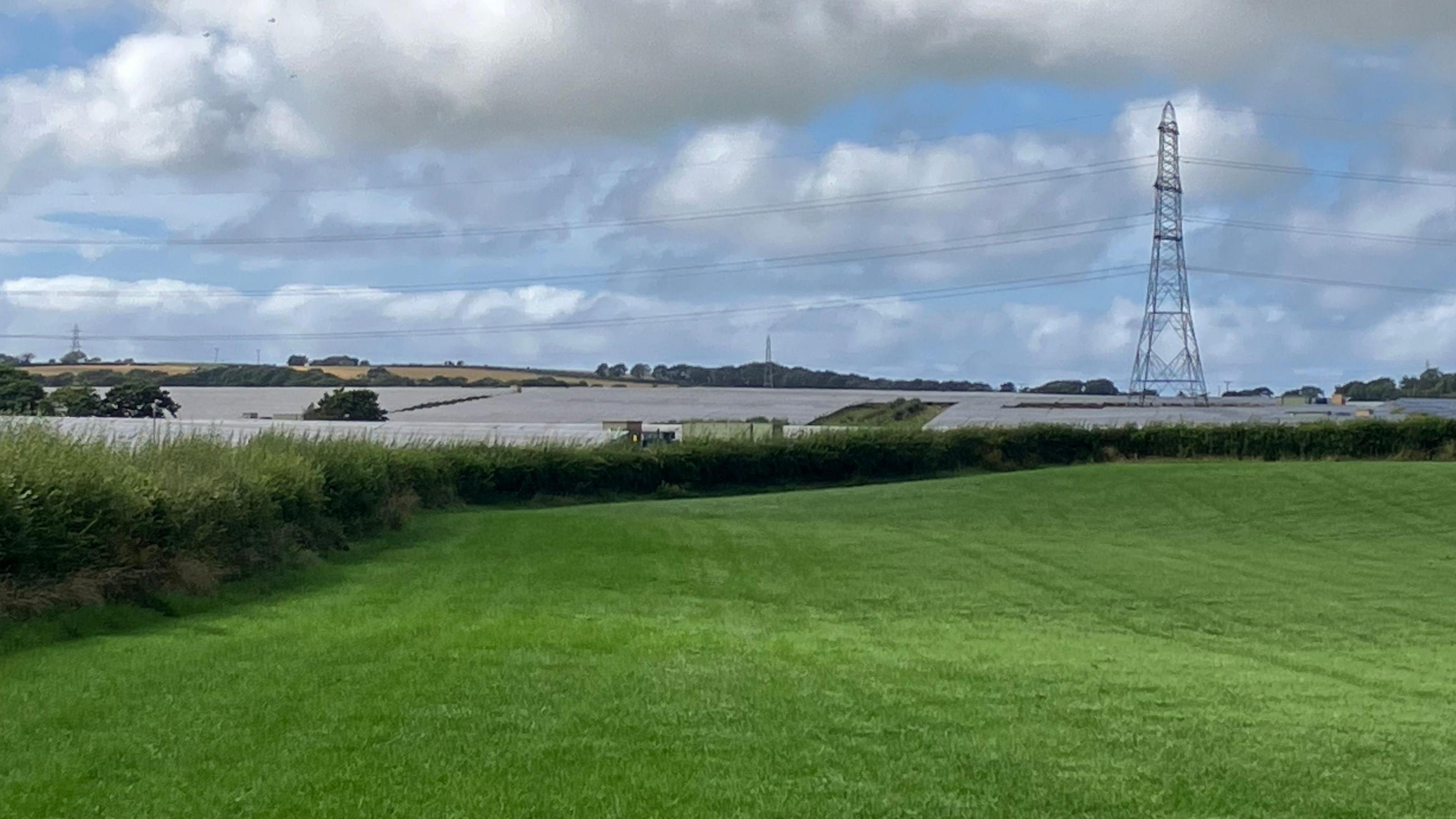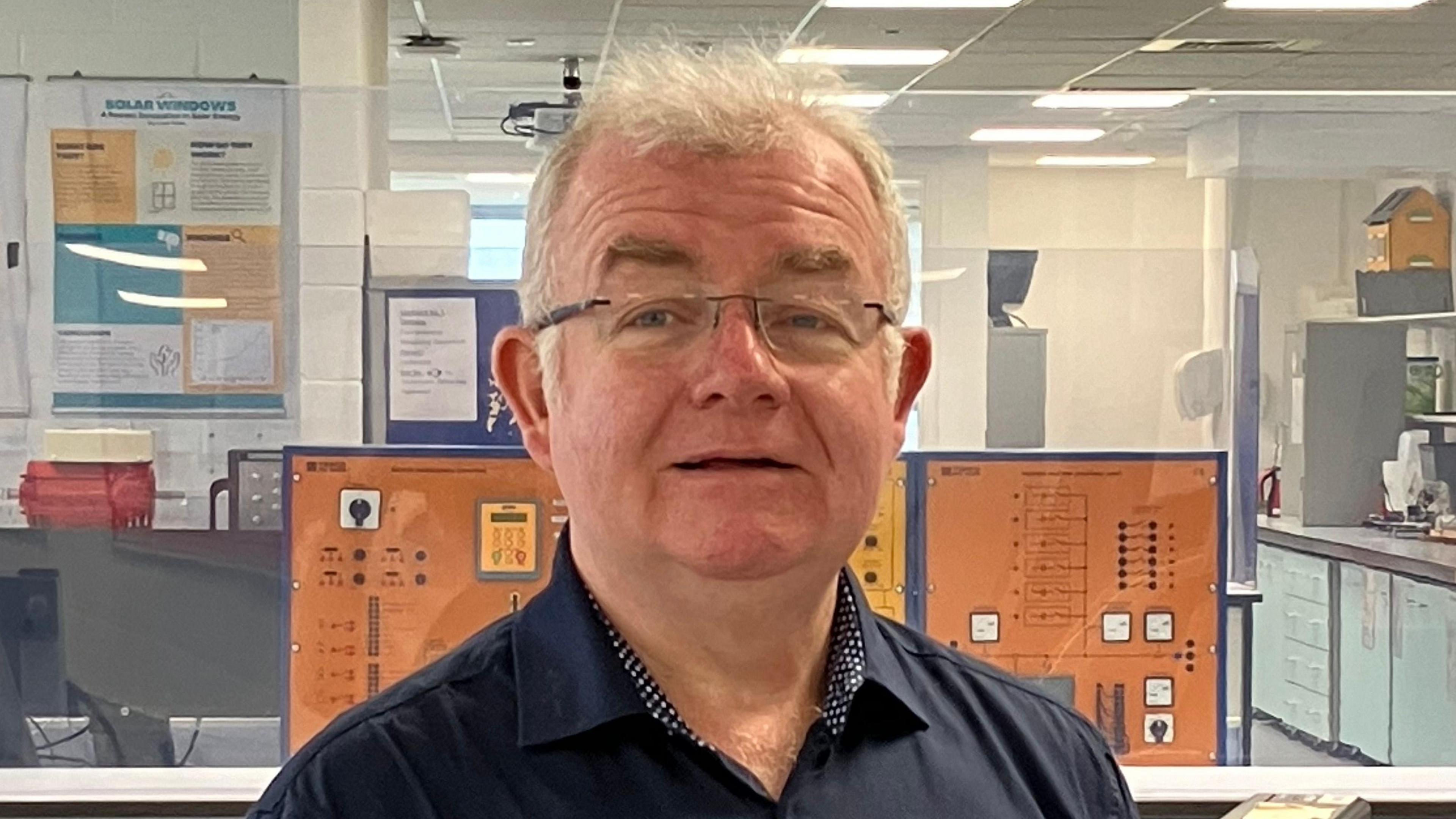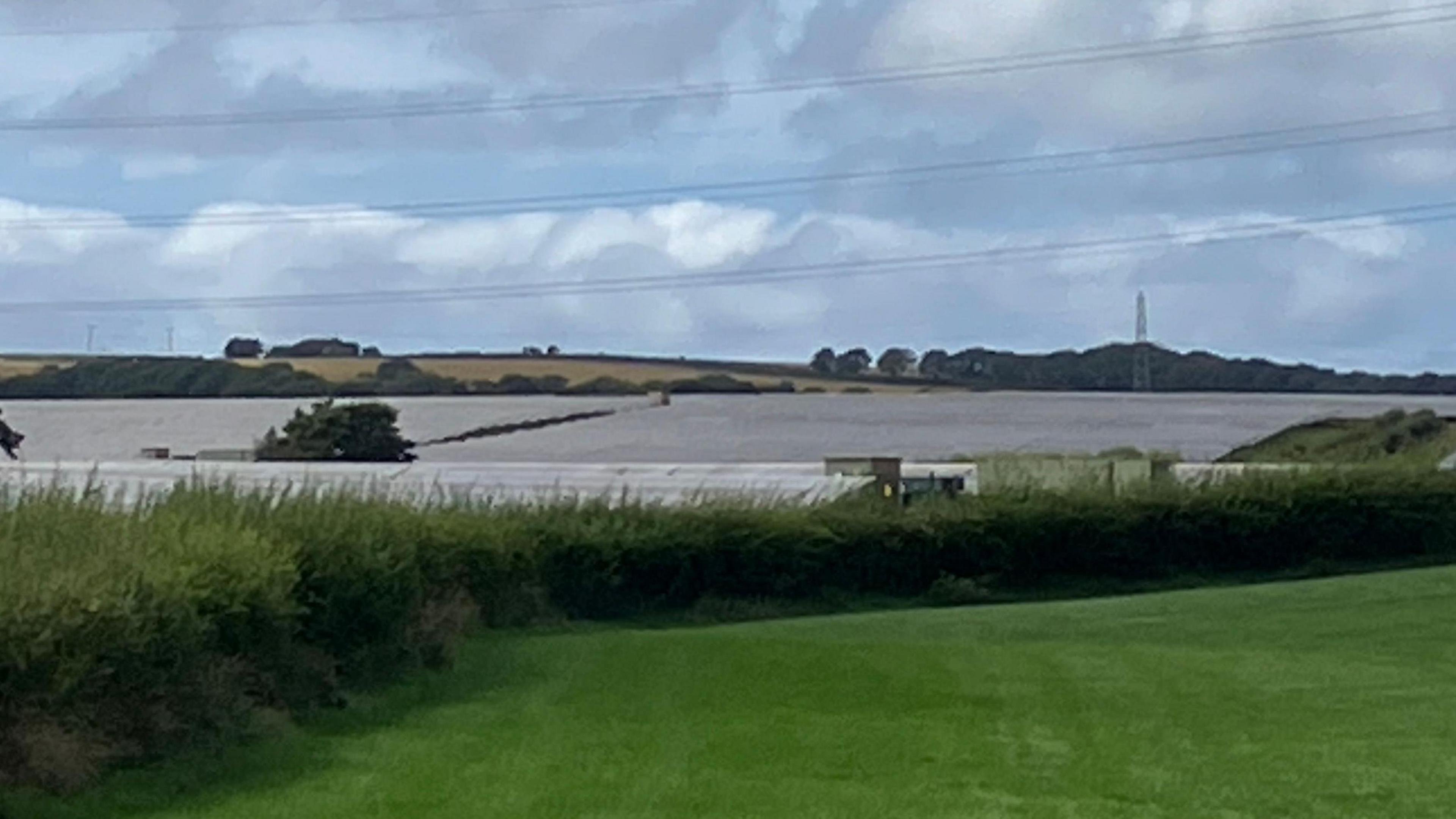Solar farm plans refused over visual impact fears

The solar farm would have covered 200 acres of land next to existing panels
- Published
Plans for a huge solar farm in Cornwall have been refused over concerns about the visual impact it would have on the landscape.
Residents in Canworthy Water, near Launceston, argued building it on 200 acres next to an existing solar farm would produce the appearance of an ocean.
Developers Windel insisted it would have helped the UK meet its renewable energy targets in the future.
The scheme was turned down by a vote of 7-3 at a meeting of Cornwall Council's strategic planning committee.
Local residents raised concerns about the loss of agricultural land from the development and claimed Cornwall was being used as a "dumping ground" for solar panels.
Councillor Barry Jordan, who represents the village on the council, said the proposals were causing people "sleepless nights" and "anguish."
He raised fears about the impact of lorries on narrow rural roads during the construction of the solar farm.
Developers Windel had said: "The solar farm would generate 42MW of solar energy, enough to power 11,000 homes per year.
"The scheme would make a significant contribution to the government’s Energy Security Strategy: Net Zero by 2050 and key targets including decarbonising the electricity system and increasing installed solar capacity up to 70GW by 2035."
It said livestock would still have been able to graze on the land after the panels had been built and the impact on roads during the construction phase would have been mitigated.

Renewable energy expert Peter Connor thinks more solar farm applications in Cornwall will be submitted
The government said it wants the UK to become a "clean energy superpower, external".
The Department for Energy Security and Net Zero had already approved contentious plans for huge solar farms elsewhere in the country in the past few weeks.
It stressed all applications would be thoroughly scrutinised and it wanted local communities to benefit from the power generated.
Peter Connor, an associate professor in renewable energy policy from the University of Exeter, predicted more solar farm and wind turbine applications would be made in Cornwall.
He said: "Cornwall has a good solar resource - it's sunny here because we're in the south. It's windy because we stick out into the Atlantic and we get the first of the wind.
"We don't want the whole county to be covered. We do have to be careful to protect the natural beauty of the county. We don't wanna ruin where we live to make the world a better place."
Follow BBC Cornwall on X (formerly Twitter), external, Facebook, external and Instagram, external. Send your story ideas to spotlight@bbc.co.uk, external.
Related topics
Related internet links
- Published14 August 2024
